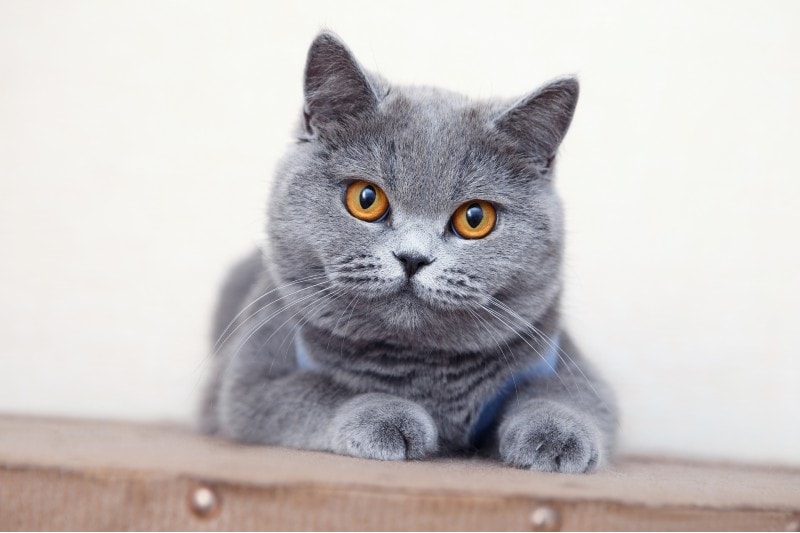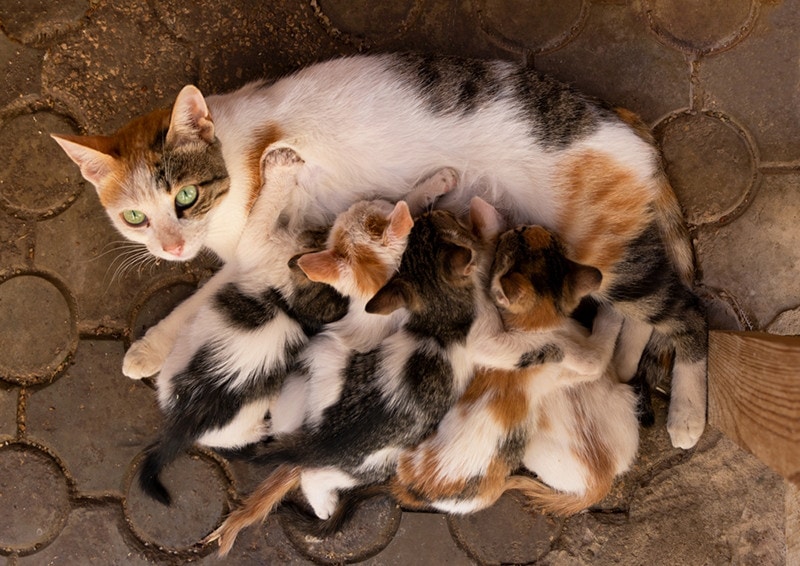Why Do Cats Hiss? 7 Reasons for This Behavior

Updated on

It often takes us by surprise when a cat, whether it be ours or someone else’s, hisses at us. Contrary to popular belief, this isn’t usually a sign of aggression or hatred towards you. Rather, it is fear that makes them hiss. Hissing is completely normal behavior and something that even big cats do. Domestic cats have several different reasons that lead to this behavior. Mostly, it is a way of communicating that they feel threatened.
So, what are some of the reasons that your cat might hiss? Let’s take an in-depth look at some of the main situations that lead to this behavior.
What is Hissing?
The sound of cats hissing is made when the cat forces air through their tung while arching it upward toward the center of their mouths. The puss of air that is released makes the hissing sound that we are all familiar with. Many cats display other visual body language cues that warn us that they are not comfortable. Some arch their backs, flatten their ears, pull back their lips, or make their hair stand up.
It’s a normal reaction to get a little nervous when they use this behavior. After all, that’s the whole purpose. Hissing is believed to be a sort of defensive instinct that serves as a warning to those around them that they will lash out if the threat doesn’t stop.
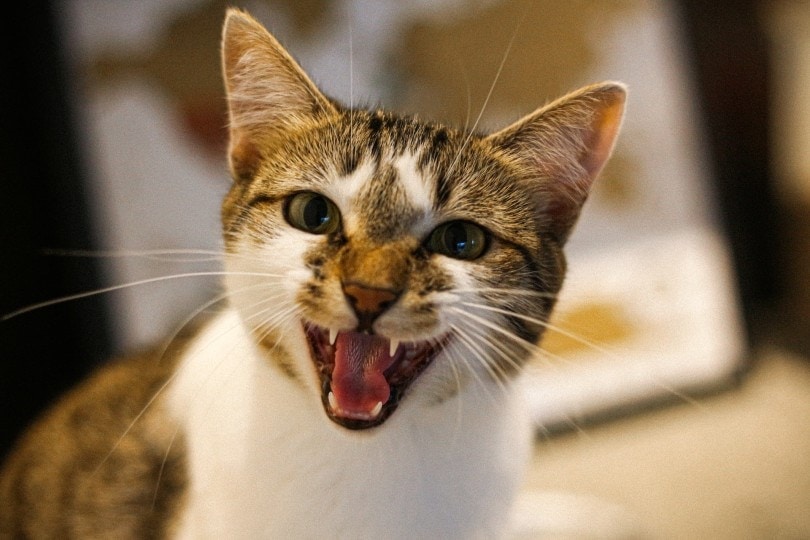
Top 7 Reasons Why Cats Hiss
It’s okay to feel a little nervous whenever your cat hisses but remind yourself that this is a simple form of communication and think about what might be causing the behavior.
1. Fear of People
Cats are more likely to hiss when they feel scared than if they feel angry. There are quite a few cats out there that are fearful of people, especially if they have never been around that specific human before. If you notice that your cat hisses more when around certain friends or family members, it is a good indication that they don’t feel safe around those people and need to be confronted differently.
Stop what you’re doing when the hissing starts and give them some space. Remove your friend or yourself from the situation if possible and provide them with a chance to escape to a place where they feel more secure. It could even take them a few days to recover from the encounter. Be gentle with your cat and understand that they are reacting on instinct in order to protect themselves.
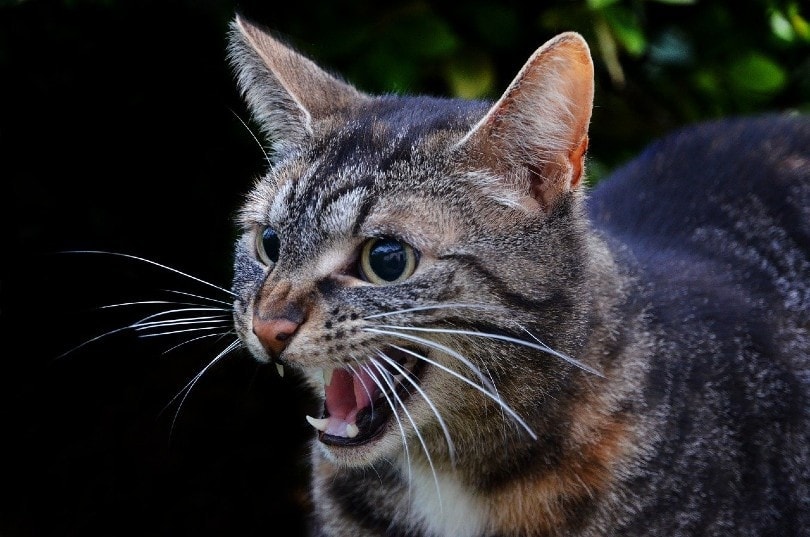
2. Confrontation with Animals
It isn’t a surprise that your cat hisses whenever a new, unfamiliar pet friend comes around. Cats do not like confrontation with other animals, and this is the only way that they know how to tell their aggressor that they need to keep their distance. Hissing becomes even more popular between two unneutered male cats that are looking for mates. In this type of situation, hissing is used to intimidate the competition.
Recognize that hissing is a defensive tactic rather than an offensive one. Hissing doesn’t always mean that the cat is the aggressor. Many times, the one hissing is the one who is the victim. If you notice this behavior between two animals, separate them right away to keep the situation from escalating.
3. Protecting Their Young
If you’ve got a mama cat at home, don’t be surprised if they make protecting their new babies their top priority. Mother cats are known to hiss from time to time if someone comes too close to their litter. Even the most sociable cats may have some behavior changes after giving birth. Respect that this is a natural reaction. Give the mother the space she needs to care for her babies.
It is in her nature to know what to do but still keep an eye on them from afar to make sure they are all in good health.
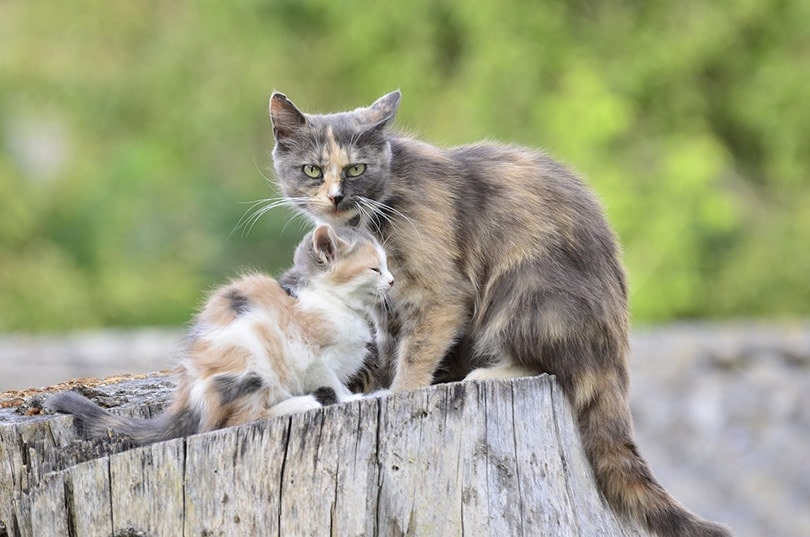
4. New Situations or Places
Cats are creatures of habit, and they don’t do well when there are a lot of changes or when put into an unfamiliar situation. Environmental changes create a lot of stress and discomfort, and it could take a while for them to become accustomed to the new lifestyle. Ease their fear by slowly introducing them to new objects or situations instead of overwhelming them.
Make sure they get lots of treats and affection during this time as well to let them associate the unknown with something good. Over this, the hissing will slow, and they will feel more comfortable.
5. Stress
A similar issue to the last is related to stress. Stress can arise due to many different things, whether it be unfamiliarity or feeling threatened. Do your best to figure out the stressful trigger and put them at ease. Do not expose stressed cats to fast movement or loud sounds. Try to make their surroundings as calm and relaxing as possible.
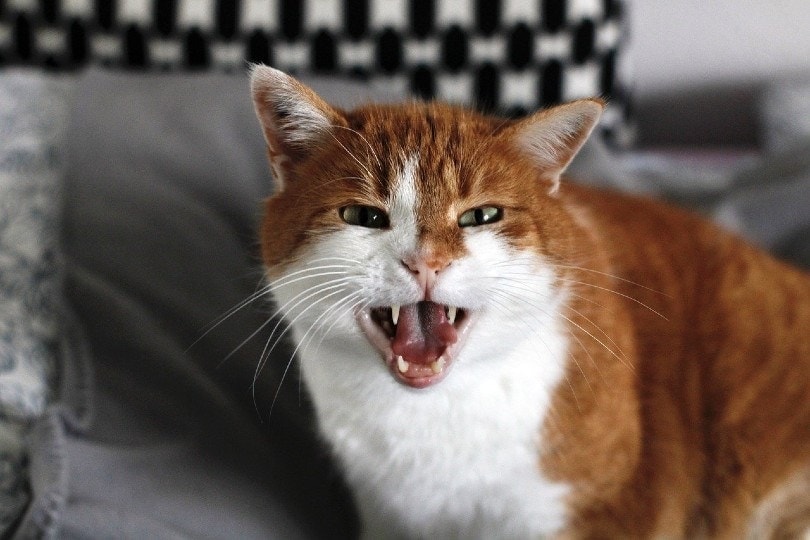
6. Physical Pain
Physical pain is another likely reason that your cat has started hissing. The hissing usually happens more when they are approached or handled by humans when they are not feeling well. This is the only way they know how to tell you that they do not want to be handled. Physical pain isn’t as common as some of the other triggers on this list, but it isn’t unheard of either.
To determine if your pet is in pain, make a note every time they hiss and see if you notice a pattern. If possible, take them to the vet to be evaluated.
7. Annoyance
Annoyance isn’t the most common reason for hissing, but some cats have quirky personalities, and they don’t mind hissing for simply being annoyed or displeased with someone. If this is the case, you’ll likely notice that their body language isn’t telling you that they are afraid. It could be something as minor as not wanting to go outside or not getting the treat they want that makes them hiss.
Remember that giving your cat a little bit of space is usually the best way to remedy the situation.
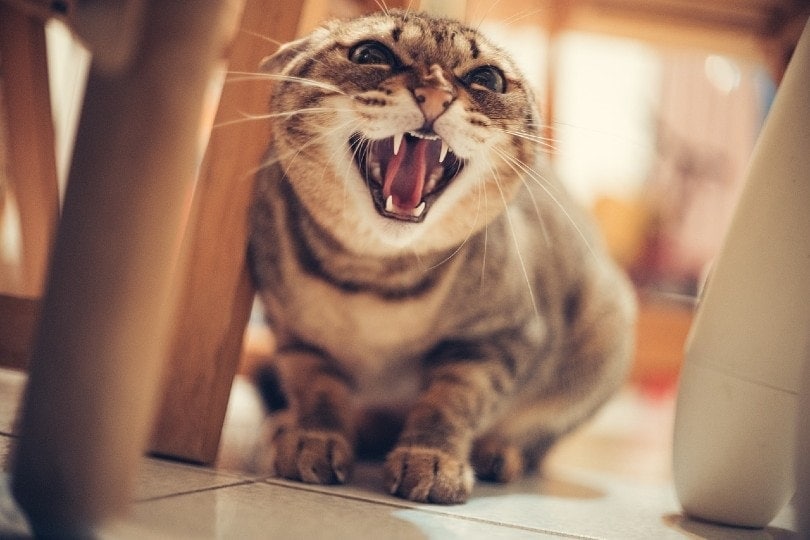
What to Do When Cats Hiss
Always try to recognize why your cat is hissing before taking steps to amend the situation. It always helps to give cats a space of their own where they can spend time with themselves and feel safe and comfortable. For example, put a cat tower in a quiet part of the house where they can be up and away from danger while still being cozy. Give your cat their own space to calm down and try your best not to mimic the situation to keep it from happening again.
Final Thoughts
Most of the time, cats hissing isn’t a huge deal. Do your best to put them in a situation where they are going to feel comfortable again. If the behavior continues, contact your vet, who might help you brainstorm why the hissing continues. If they are in physical pain, they will be able to treat your cat and hopefully get the hissing to stop.
Cats are animals with individual personalities, and you never know how they are going to react to a new situation. Stay calm and try to empathize with how they feel instead of panicking and making them feel worse.
Featured Image Credit: Slava Dumchev, Shutterstock



